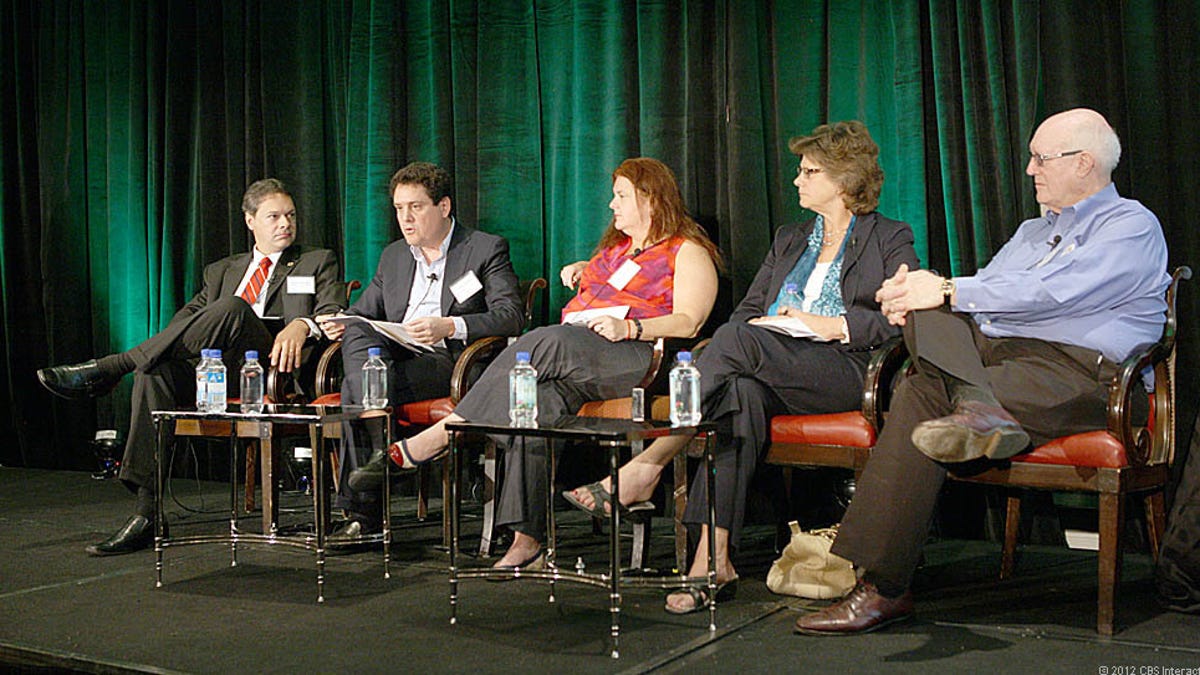European ISPs defend U.N. Internet tax
Meanwhile, reps of Verizon and the U.S. government attack the proposal to give a U.N. agency more control over the Internet, which could include levying fees on content providers.

ASPEN, Colo.--European network providers today defended their proposal submitted to a United Nations body that would allow them to levy fees on content providers including Google, Facebook, Apple, and Netflix.
"We believe that this situation is putting at risk our capacity to invest," said Luigi Gambardella, chairman of the executive board of the European Telecommunications Network Operators, or ETNO. "We need to rethink together and to establish a new balance."
The idea was not exactly popular with representatives of the U.S. government and Verizon, who also spoke at the Technology Policy Institute's conference here this morning.
"The proposal itself doesn't respect the way the Internet technically works," said Fiona Alexander, associate administrator at the National Telecommunications and Information Administration, which is part of the U.S. Department of Commerce. The Obama administration has previously criticized giving the United Nation's International Telecommunication Union more authority over the Internet.
ETNO's proposal comes "in the midst of this dialogue and debate in a way that we think, frankly, is dangerous," said Kathy Brown, Verizon's senior vice president for public policy.
While this is the first time this plan has been proposed before the U.N.'s ITU, European network providers and phone companies have been bitterly complaining about U.S. content-providing companies for some time. France Telecom, Telecom Italia, and Vodafone Group want to "require content providers like Apple and Google to pay fees linked to usage," Bloomberg reported last December.
ETNO refers to it as the "principle of sending party network pays" -- an idea borrowed from the system set up to handle payments for international phone calls, where the recipient's network sets the per-minute price. If its proposal is adopted, it would spell an end to the Internet's long-standing design based on unmetered "peered" traffic, and effectively would tax content providers to reach non-U.S. Internet users.
"We should have the freedom to make commercial agreements based on the value of the information," Gambardella said today. "This would benefit us because we could have additional revenue." He said that he'd like to enter into deals with content providers to offer better-than-best-effort connection speeds, which, he said, would benefit everyone. (ETNO is a Brussels-based lobby group representing network operators in 35 European countries.)
Steve Crocker, chairman of the Internet Corporation for Assigned Names and Numbers, or ICANN, offered a more modest critique of ETNO's proposal.
"The assumptions that are inherent in that terminology do not carry over from telephony to the Internet world," Crocker said.
That's because the idea of fees based on bits entering and leaving national networks can be fluid because of services like Akamai and data centers that U.S.-based companies have been building abroad. Google has data centers or installations in Finland, Belgium, and Ireland, and Facebook has built a data center in Sweden.

